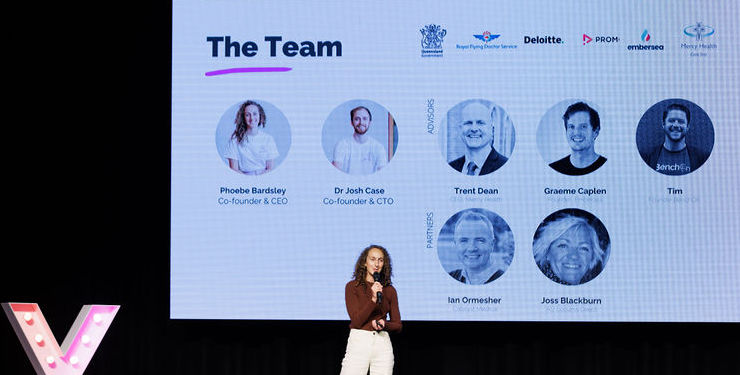7 Ways Finding a Co-founder is like Dating
Red flags, green flags, ghosting, and everything in-between

If you want to see what we're up to, check out Go Locum - the medical workforce marketplace.
Michael Seibel, who founded Twitch.tv and is currently the managing director of Y Combinator, famously said that the vast majority of startups that find product-market fit take more than two years to reach that milestone.
And if you somehow make it to that point, it could easily be another 5 or 10 years before you make an exit via acquisition or fold, or some combination of the two.
Given that a startup journey of 5-10 years is longer than the majority of romantic relationships, there's a strong case to be made that you should show equal or more care when choosing a co-founder as you do a potential romantic partner.
Here are 7 things you should ask both a potential romantic partner as well as a potential co-founder:
1. Are you emotionally available?
I can say from personal experience that startups are a rollercoaster of adrenaline, despair, joy and chaos. They introduce a whole layer of unpredictability into your life that requires emotional capacity to tolerate if you want to both succeed and live to tell the tale.
In times of my own life where I've had instability for one reason or another, it's much harder to give your startup or partner the emotional bandwidth they require.
Making sure you and your co-founder are similarly prepared for the psychological commitment of chaotic startup life, and the potential stressors it creates for home life, is essential.
2. Where do you see yourself in 5 years?
One of the tricky things about human relationships is that they're dynamic. When two people form a connection, they're often in a similar stage of life in some way. That might mean they're working at the same place, live near each other, or have similar interests.
And because people are constantly changing, it's unfortunately an unavoidable fact of life that some relationships will become strained as time goes on and people evolve.
Perhaps you and your co-founder are final year university classmates now, but in a few years one of you will have a mortgage and a baby, and the other will be single and wanting to travel to see the world.
If you think about it, it's actually quite unlikely that someone you form a bond with is also heading in a direction in life that allows you to maintain that bond with the same intensity in the long-term.
When courting a potential co-founder, it's important to understand what their life ambitions are and whether those ambitions will be compatible with startup life into the foreseeable future.
3. Are you still seeing other people?
Startup godfather Paul Graham said:
"The most important thing for startups to do is to focus. Because there are so many things you could be doing, one of them is the most important. You should be doing that, and not ANY of the others. You should not be grabbing coffee with investors. When you want to raise money, you shift into fundraising mode and you go and raise money. You do not promiscuously meet with investors in the middle of the day when you should be working simply because they send you an email saying hey let’s grab coffee."
When one co-founder has more projects or commitments on the go than the other - especially projects that make money or are immovable like family commitments - it can be a case for disaster. I've seen co-founding partnerships that start out dandy, but the asymmetrical level of focus between founders eventually fosters resentment.
I propose that potential founders table their commitments openly and early, and a frank discussion should be had around how much time each founder can invest to the startup. If there's significant asymmetry here, there should probably be a very good reason for it, and some sort of plan to resolve this in the long term.
4. How would we handle conflict?
There's an old adage that says when two people always agree in a business, one of them is unnecessary.
Honestly, if I think about the dynamic that Phoebe and I have as co-founders of Go Locum, it's sometimes difficult because we frequently disagree on the right steps forward.
But there are three redeeming qualities here, as far as I see it with Phoebe and I:
- We're united under vision. Phoebe and I both have the goal of making healthcare safer and more accessible, and by bringing this vision into the context of disagreements, an obvious conclusion often emerges.
- Disagreements on strategy or tactics are never personal. Even when we don't see eye to eye, I've never felt like I'm not valued or respected, or that our friendship is at stake.
- We have adopted a systematic methodology to help us resolve disputes. Typically it's the onus of the person who wants to change direction to provide quantitative evidence that their idea is the best way forward. This burden to produce evidence scales with the magnitude of the direction change.
My advice to budding co-founders would be that it's far more important to agree on how you will resolve disputes, rather than hoping to agree on every tiny step in your plan to success, because unfortunately disagreements are inevitable.
5. How do you like to manage your money?
There are many ways to build a business financially, from venture capital, to angel investment, to bootstrapping.
Each of these has their pros and cons, which is beyond the scope of this article. But it is important to be clear with a potential co-founder about your views on each of the above, and how they would fit into the context of your life.
Would you feel comfortable raising money? How much, and at what stage of the business lifecycle? How much leverage and financial stress are you willing to tolerate here?
Along similar lines, how much money will each founder be expected to put into the startup, and over what timeframe? Who makes decisions around spending our cash, and how much freedom do they have?
6. What is your risk appetite?
In the "move fast and break things" era of high growth companies, it's easy to get swept away by the commotion of running a startup and suddenly find yourself in over your head when it comes to risk.
Are we prepared to lose money?
Are we prepared to stake our reputation on the outcome of this business?
Are we prepared to grow this business at a high rate, and therefore potentially jeopardise what we're offering to our existing customers?
What about the theoretical risk of litigation for practicing business in morally grey areas? Remember when Uber invaded heavily regulated jurisdictions with reckless abandon?
The answer to any of these might be yes or no - and that's okay. What's more important is that co-founders are at least loosely aligned in their views in these domains.
7. What are your dealbreakers?
No matter how cosy your romantic or business relationship is to begin with, there's always potential for trouble when a boundary is crossed.
Phoebe and I were quite clear early on. If we went through a prolonged period where we were either not enjoying our work with Go Locum, or were continuously losing confidence that it's a viable business (without ideas about how to fix it), then it would be time for us to quit.
Having clear boundaries, whether that be timeframes, amounts of money, or other acts or omissions, is in my opinion, the best way to make sure both parties in a relationship remain happy and respected.
If you're a doctor who wants high-paying locum jobs all over Australia, check out Go Locum.
